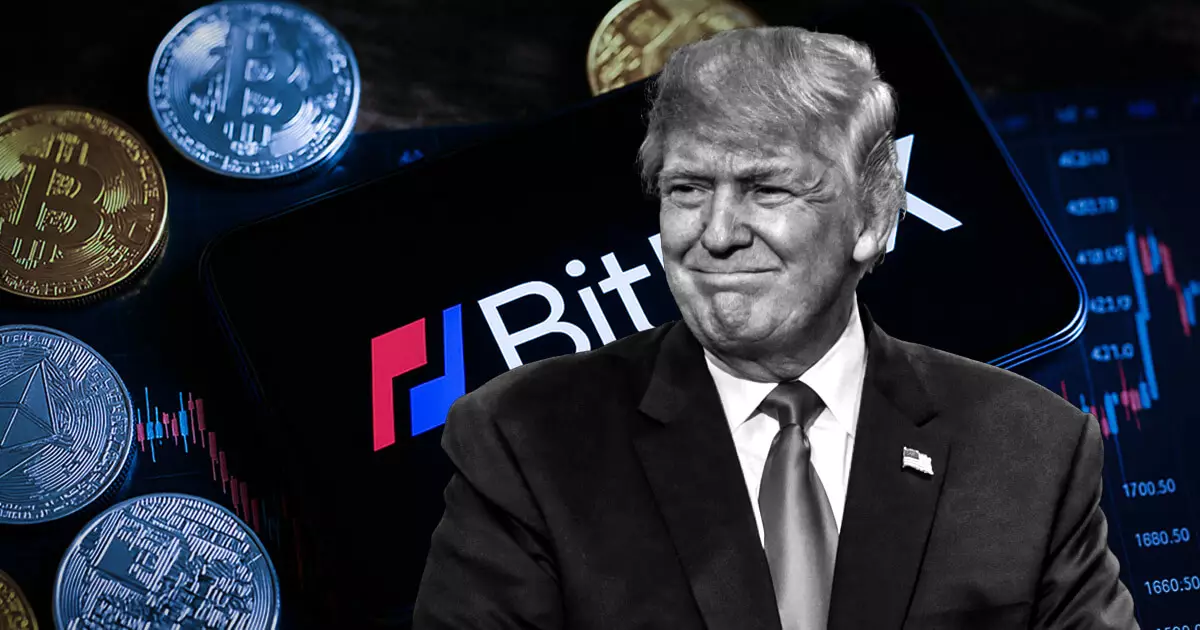In a surprising turn of events, former President Donald Trump has pardoned the co-founders of the controversial crypto exchange BitMEX—an act that reopens an ongoing debate about the regulatory environment surrounding cryptocurrencies. Arthur Hayes, Benjamin Delo, and Samuel Reed were initially prosecuted under the Bank Secrecy Act after admitting to violating U.S. anti-money laundering regulations. Their actions brought to light the complexities and challenges regulatory bodies face in a rapidly evolving financial landscape. While some may see the pardons as a vindication of the found guilty trio, others are left questioning the integrity of a system designed to protect investors and maintain market integrity.
A System Built on Technicalities
The BitMEX case exemplifies how a combination of outdated laws and frenetic technological advancements can create loopholes that companies exploit. Co-founder Delo characterized the charges against them as stemming from regulations that fail to keep pace with modern financial practices. It’s a valid sentiment but serves only as a distraction from their apparent negligence. By allowing U.S. customers to register with minimal scrutiny, the founders arguably facilitated an environment ripe for illicit activities. Delo claimed they were made into sacrificial lambs, but should lawbreaking business leaders really be viewed as victims of misdirected regulatory enforcement? While the need for more nuanced regulations is clear, it cannot excuse blatant disregard for existing laws.
The Price of Compliance and Consequence
The trio’s admissions of guilt, along with their hefty fines and probationary sentences, signify accountability in a chaotic market. They each forked over a staggering $10 million as part of their plea deals—a clear indicator of the severity of their infractions. The legal repercussions weren’t merely punitive; they also served as a cautionary tale for other crypto platforms. In the wake of their actions, the landscape shifted, leading to the imposition of stricter guidelines aimed at ensuring that exchanges do not skirt around compliance obligations. BitMEX had not just violated laws; it had contributed to a growing mistrust towards cryptocurrency exchanges that prized profit over ethical governance.
A Precedent of Impunity?
With Trump’s pardons, new debate emerges around the implications of de facto impunity granted to those in the financial sector. Critics could argue that it sets a perilous precedent where high-profile individuals can evade accountability through political connections. Numerous lesser-known offenders in the financial landscape, particularly those who operate on the fringes of legality, do not have the luxuries afforded by high-level connections. It raises the alarming possibility that only those with sufficient clout can escape the penalties of regulatory infractions, effectively compromising fairness in an already skewed landscape.
The Broader Implications for the Crypto Industry
The BitMEX saga is not an isolated incident; it is indicative of the broader challenges that the cryptocurrency industry faces today. As more individuals flock to decentralized finance without adequate understanding or safeguards, the potential for systemic abuse increases. The pardoning of the founders may embolden other rogue players in the sector, who could perceive regulatory breaches as mere speed bumps rather than serious legal infractions. If the lessons from BitMEX go unheeded, we could see an exodus of confidence in the burgeoning cryptocurrency market, making it ripe for manipulation and abuse.
The path forward requires a re-evaluation of how regulatory compliance is structured within the cryptocurrency arena. While laws may be formidable, they cannot compensate for a lack of moral fortitude among the very individuals shaping the industry. The pardons of Hayes, Delo, and Reed stand as a dichotomy—a celebration of forgiveness juxtaposed against the continued need for stringent oversight. In a world where the line between innovation and culpability is increasingly blurred, the responsibility lies with both lawmakers and industry leaders to ensure that the future of cryptocurrency does not mirror the chaos of its infancy.


Leave a Reply